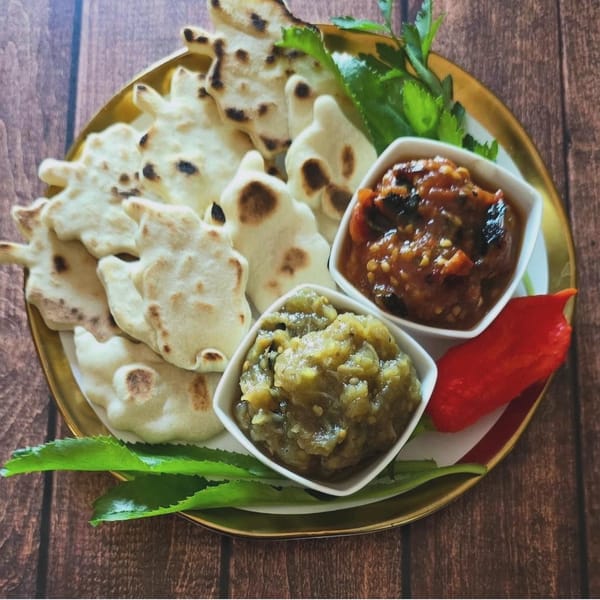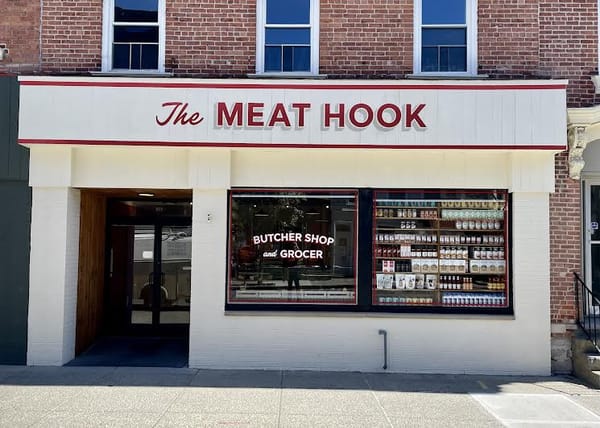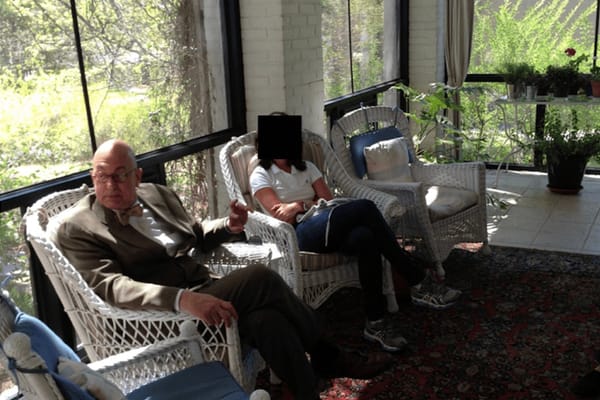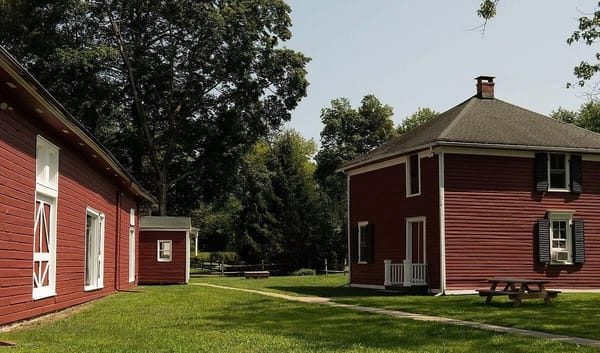
AgriCulture bloggers Peter Davies and Mark Scherzer are the owners of Turkana Farms in Germantown, NY. This week, Peter writes: From time to time over the past three years, Mark and I have gotten very kind encouragement from readers of our bulletin, the kindest remark being: “You should really write a book.” We felt a certain gratification but did not take the suggestion seriously. Then at some point, as the number of our bulletins increased and they became more and more ambitious, we realized to our surprise that we actually were writing a book. And so for the past half year or so we have been re-editing and organizing our bulletins and looking into book agents and publishing houses. As a measure of our seriousness we share with you this week our Foreword, as follows. First, a farm in the making and now a book – but is it a compilation of “essais” or “essays,” we wonder, as we try to find a title or descriptive word for what we are doing. Mark, who goes more for a utilitarian, plain style, predictably favors "essay," feeling "essai" to be a bit pretentious. I lean to "essai" since to me it carries a wider meaning. In our back and forth we reminded ourselves (or I reminded Mark) that “essay,” which the American College Dictionary defines in its first listed definition as "a short literary composition on a particular composition," derives from the French word essai meaning "an attempt,” as in: "to ‘essai’ to accomplish a goal."

The American College Dictionary does list a secondary definition for essay: "an effort to perform or accomplish something," and that to me perfectly describes our venture into farming. So that sense of "an attempt " is already in the English word "essay" as a secondary meaning. However, it is a meaning that does not usually come immediately to mind and is not all that much in general usage. After some thought, and back and forth with Mark, I still find "essai" particularly apt since it brings to the forefront what in English is only the secondary and less familiar definition. Our entire endeavor, both the farming and the writing about it, could be called “Essais in Farming,” which captures the double sense, in my mind, better than: "Essays in (or on) Farming." Actually, it was never our intent to write a book, and this is not a book in the classic sense of a narrative with a beginning, middle, and end. What we offer is a collection of essays originally written as weekly e-mail bulletins for customers of our small Hudson Valley farm, Turkana Farms, in Germantown, New York. Through these essays we have tried to create a sense of community with our customers, who want to connect with and know how their food is raised. Writing has enabled us think through issues and to learn, too, from our readers’ responses. Sometimes the essays have been an outlet for creative urges. But originally, quite frankly, they were conceived as a way to promote sales of our farm products.

As will become apparent to those who read the chapters on personal history, farming is a late in life experience for us. Peter is 74 and Mark 61. We’ve been romantic and domestic partners since meeting in a Greenwich Village bar more than 33 years ago (here we are in 1987, nine years into our relationship, at a march on Washington, DC, for lesbian and gay rights). But we have engaged in the quixotic adventure of becoming farmers for only the last ten of those years. How that came to be is one of the stories we tell in our writings.

We’ve gone about the venture in the way you might expect of a former professor (Peter, right, earned his PhD in theatre history at Yale in 1967) and a lawyer (Mark, below, with his law degree from the same venerable institution in 1978). That is, by analyzing and verbalizing about the process along the way. And, like most American farmers today, we continue to rely for our livelihood on non-farm occupations (Peter selling kilims in his Manhattan gallery, and organizing cultural tours to Turkey; Mark lawyering for consumers with health or disability insurance problems), the pursuits we were engaged in when we bought the farm. We often joke that, in the strange, irrational American food system as it unfortunately exists today, it takes at least two businesses and a law firm to support a farm.

At first our musings were directed solely to a couple of hundred farm customers in a weekly email blast as a way of engaging them and educating them, thus earning their loyalty , and also, of course, letting them know what we are selling. Then in April, 2009, one of our e-mail list members, Marilyn Bethany, a former New York Times editor who, with Dan Shaw, was creating the website Rural Intelligence, convinced us to publish our essays as a blog called AgriCulture on their site. Almost all the essays in this volume date from that time forward. When Rural Intelligence suspended publication for a time beginning in September 2011, we began reading our weekly essays on Robin Hood Radio, WHDD-FM, the smallest NPR radio station in the country. In May of 2012 Rural Intelligence resumed publication and we have resumed contributing the AgriCulture column. The essays (or is it "essays?") are now a feature in both venues. The interest expressed by these audiences has had the effect of raising the level of our literary attempts ("essais") to the point that we have been led to hope that they very well might merit compilation in book form for the attention and delectation of an even larger audience. Whether they do or not we leave up to you.

Our subject matter in any given week might be inspired by events at the farm (such as a birth or death or a planting or a harvest), the need to sell a particular farm product, political events, personal milestones, travel, or books or articles we have been reading. Looking back over the essays, we have found that we repeatedly return to certain themes. Using those themes, we have organized the essays for purposes of this volume into chapters. The reader may want to read through sequentially from start to finish, or may want to dip in to only certain categories of interest. Nonetheless, we’ve provided the dates of the original essays enabling the reader to perceive something of our development over time. We hope that our “essais” ( Mark would say "essays") will serve as a guide for those who want to make similar "essais" into farming, and as a means of understanding and appreciating the processes, adventures, and vicissitudes of farming for those who simply want to better understand where their food comes from. And that, dear readers, is the Foreword, which we hope gives you a clear picture of what we are about. Any suggestions you have for the book would be welcome.—Peter Davies








